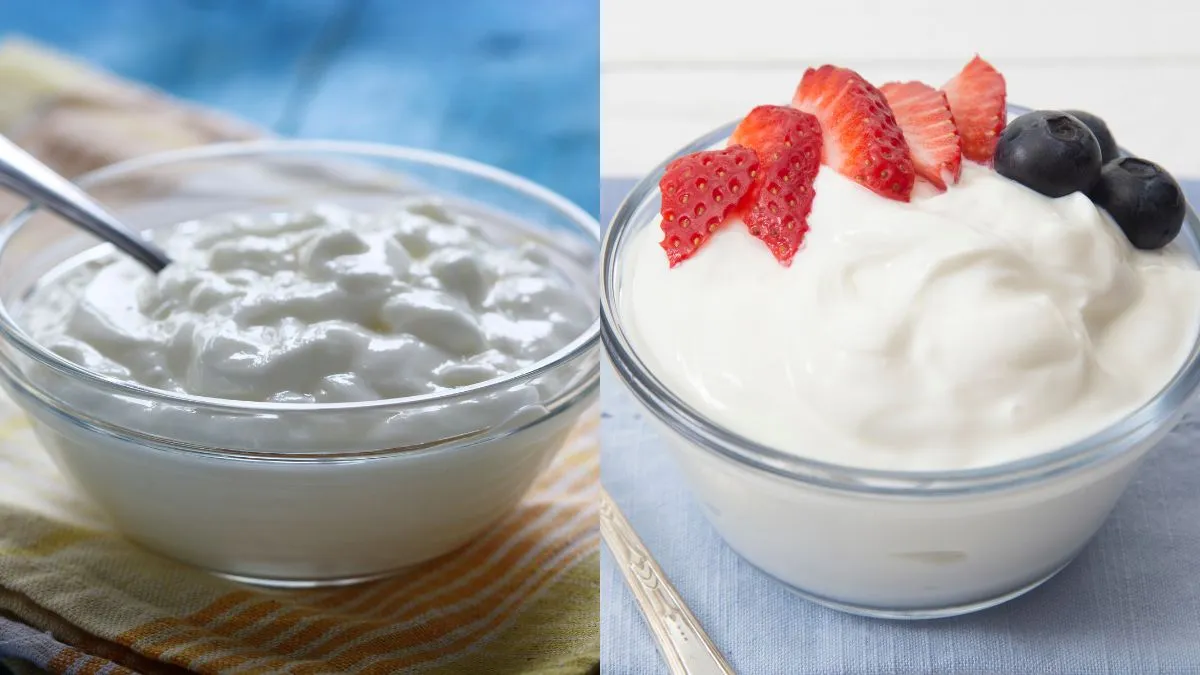- By Bornika Das
- Fri, 16 May 2025 01:31 PM (IST)
- Source:JND
Curd vs Greek Yoghurt: Curd or dahi is one of the dairy staples prevalent in Indian households, owing to its several benefits. However, in recent times, a new cousin of curd, that is, Greek yoghurt, has gained significant attention in India. Both of them have managed to take the centre stage among the healthy food items. They are celebrated for their probiotic benefits, creamy texture and versatility in meals. Be it fitness enthusiasts, chefs or food influencers, curd and Greek yoghurt are now hailed as nutritional powerhouses. They are widely used in smoothies, in making the base of curry or eaten straight from the bowl. However, the confusion arises in understanding the real differences between the two and which should be consumed for better health.
What Is Curd?
Curd, popularly referred to as ‘dahi’ in Indian households, is a simple, homemade dairy product which is prepared by fermenting warm milk with a small amount of existing curd or an acidic agent like lemon juice. The process is easy and takes no effort. This dish is mildly tangy in taste and has a soft texture. It contains gut-friendly bacteria that support digestion. As curd can be prepared at home, its texture and flavour vary on the milk used.
What Is Greek Yoghurt?
Greek yoghurt is considered a more refined version of curd. It has gained immense popularity in recent years and for all the good reasons. Greek yoghurt contains more protein than curd. It is prepared by straining regular yoghurt multiple times to remove extra whey, resulting in a thicker and creamier consistency. The extra straining process helps increase the protein content, making Greek yoghurt ideal for those looking to add more protein to their meals.

Greek Yoghurt Is Creamier Than Curd (Image Credits: Canva)
Curd vs Greek Yoghurt: Key Differences
Curd has a light and a bit runny and soft texture, while Greek yoghurt is thick, creamy and dense. The taste of curd is milky and slightly sour, whereas in the case of Greek yoghurt, it is more on the tangier side. Curd contains approximately 4-5 g of protein per 100g, in contrast to Greek yoghurt, which provides 10g of protein per 100g.
Curd vs Greek Yoghurt: Which One Is Healthier?
Curd is a natural and traditional dish that provides freshness and soothes the body. This homemade version comes with minimal interference, like straining and contains loads of natural probiotics that is great for everyday consumption. If you’re cooking traditional meals, stick with curd as it blends perfectly with the spices and dishes.
However, people who are looking for extra protein to fulfil their daily or gym requirement, Greek yoghurt must be the go-to option. It is great for workouts and muscle recovery, keeping them full for longer. Greek yoghurt is easier on the stomach as straining removes lactose. You can add Greek yoghurt to smoothies or as a dip for snacks, owing to its great texture.
